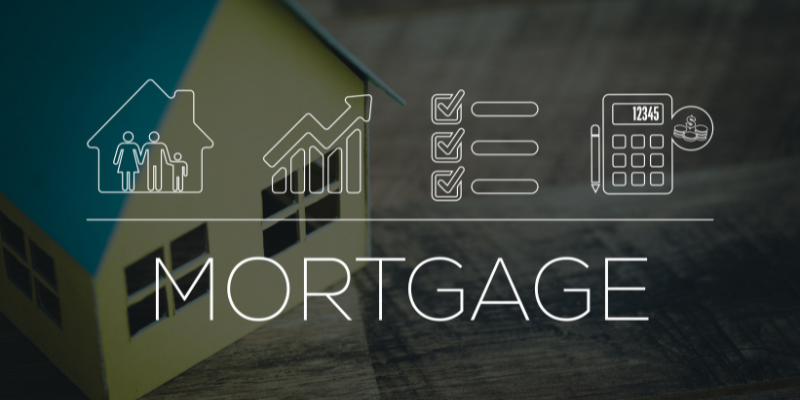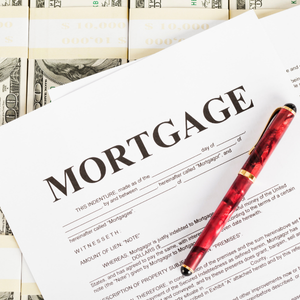
When you have a mortgage and need to sell a house in Pennsylvania, the experience doesn’t have to be overwhelming. If you’re relocating, moving to a larger home, or simply looking for a change, learning the most important things you need to know can help sell a mortgaged home. This guide focuses on the Pennsylvania housing market, key considerations, legal aspects, and actionable steps to follow for a successful sale. Understanding everything will help you navigate the finances of the sale and various financial obligations, allowing you to sell and achieve your goals based on the existing market. For any additional help, the Team at Nura Home Buyers is ready to help.
Brief Overview
When selling a mortgaged house in Pennsylvania, selling Pennsylvania homes can be complicated, and this requires knowing how to accomplish it. To accomplish this, understanding the steps involved in selling a house, along with the legal requirements for home sales in Pennsylvania, is crucial. The major factors to consider in this instance are selecting the most appropriately priced listing home, determining how to pay off the remaining mortgage balance, and calculating the equity in the real estate you own. With some help on the equity, people can plan accordingly by staging their home and conducting a market analysis. This makes the seller fit buyers’ needs, especially when working with investor home buyers in Pennsylvania and nearby cities.
Key Highlights
- Understand all the steps and legal processes involved in selling a house in Pennsylvania.
- Get a better understanding of your home’s worth so you can list it effectively and use professional opinions.
- Financial surprises can be avoided by managing your mortgage with a current payoff statement.
- Strategic pricing, timing in the marketplace, and home improvements will help optimize your home’s equity.
- Understand and plan for the legal obligations with disclosure laws and potential capital gains taxes.
Understanding the Home Sale Process in Pennsylvania

Selling a house in Pennsylvania means you need to follow a few important steps and legal regulations. From setting a proper listing price to dealing with the intricacies involved with deed transfer, each element of the steps involved in the home sale process needs to be paid attention to. This explains the steps involved in selling a house and what the seller needs to know legally. With or without an agent, knowing this will help in the real estate process. This will explain what needs to be done to sell a property in Pennsylvania.
Important Steps to Selling a House Successfully
To sell a house in Pennsylvania, you must prepare and understand the market. Market research, comparable sales, and real estate professionals help to determine the home value. Price the home to capture the attention of serious buyers. The next step is home preparation. Making a deep cleanse, minor repairs, staging, and professional photography are vital to maximize the online appeal. Digitally marketing the listing, using social media, and throwing Open Houses capture attention and interest from prospective buyers.
When your house is for sale, be ready for offers and buyer conversations. Your agent helps you determine and protect your best interests when you evaluate the offer about the price, contingencies, and closing time. After you accept an offer, the closing. At this stage, the documentation, communication with a lender, and coordination with an existing mortgage are crucial. Hence, closing schedules must be followed to avoid unnecessary delays. Pay off the mortgage sums needed when closing. As closing dates near, leverage your coordination to align moving with your efforts in closing. With preparation, adaptive coordination, and confident negotiation, you will be in a position to complete the home-selling process. If your home is rented out, explore our guide on selling a house with tenants in Pennsylvania
To prepare your house for sale, you could consider these improvements.
- Change your light fittings for warm, inviting lights around the house.
- Paint the walls a neutral color for a fresh, clean, and modern appearance.
- Increase curb appeal by cleaning the garden and planting some seasonal flowers.
- Change the old cabinet and door hardware for new ones to give a soft, modern touch.
- Finish your minor repairs, such as leaky faucets and squeaky doors.
- Help your prospective buyers picture their future in the house by decluttering and depersonalizing.
- Positioning the key rooms with tasteful decor will draw attention to the best features in your home and help to stage your home.
- Ensure your carpets, floors, and windows are cleaned to brighten your home.
With this, your home will leave a lasting impression, thus ensuring a successful sale.
Legal Considerations for Sellers in Pennsylvania
When selling a house in Pennsylvania, there are a few crucial legal requirements you should know. Every seller must know the State Property Disclosure Law. Sellers must disclose any material defects that affect the value or safety of the property. Failing to fulfill this requirement can lead to legal action down the road. Sellers must also complete the deed transfer, which is the preparation and filing of relevant documents with the local authority. Sellers must also get the title insurance, which is one of the closing documents, to ensure any liens or legal claims against the property are settled before closing. Additionally, a lot of Pennsylvania municipalities will require an occupancy permit, which may include inspections and/or permits that must be finalized before the property can legally transfer.
Besides rules related to the property, sellers should keep in mind the taxes and closing necessities that may also apply. These may include capital gains taxes if the home wasn’t occupied as a primary residence for at least two of the last five years, so talking to a tax pro can really help. Close to the end of the transaction, sellers legally have to review and sign important documents, including the closing statement that contains all the financial information for the transaction. To make sure that a seller completes the transaction smoothly, legally, and with as little risk as possible, it makes sense to work with a qualified real estate professional who can help keep and fulfill all the legal obligations of the transaction. Knowing these factors allows sellers to feel confident and move smoothly through the transaction.
Mortgage Implications When Selling a House

When selling a house with a mortgage in Pennsylvania, you’ll need to know how the mortgage balance affects the sale process. Your mortgage needs to be managed effectively to guarantee a smooth sale. It does not matter if you are trying to make a profit on the sale or trying to sell to ease your current financial situation; the mortgage has to be handled in the right way. Selling to cash home buyers in Philadelphia and the surrounding area is easier and more flexible. This is the section that will explain the mortgage implications of selling a house. This way, you will be prepared financially for your next step in real estate.
What Happens to Your Mortgage During a Home Sale?
When selling a home with a mortgage, determining the mortgage payoff amount is the next step. In Pennsylvania, the mortgage lender has to be paid in full before the property lien can be released. This is the reason sellers request payoff statements. This payoff statement summarizes the remaining balance, interest, and additional fees, along with the payoff amount. At the closing stage, the mortgage is paid off first with the buyer’s funds, and then the seller receives the remainder of the profit after deducting commissions and other closing costs. If the sale price is lower than the mortgage payoff amount, the seller must find a way to pay the difference, unless they obtain permission from the lender to conduct a short sale. This is all assuming sales and closing costs won’t disrupt mortgage payments.
When determining how your mortgage will work in the event of a sale, consider your future finances, the amount of time you have, and the current market performance. In hotter markets, you have more flexibility in pricing and can negotiate a better sale. In slower markets, you may need to sell your home at a discount, negotiate favorable terms, and make concessions to complete the sale. Also, if you plan to buy a new home, understand your existing mortgage will stay on your credit report until it is paid off at closing, which will affect your debt-to-income ratio and the amount you can borrow on your new home. To have a better experience and make better financial decisions, have clear and open terms, work with your lender and real estate agents, and have a solid plan to make a sale.
| Mortgage Payoff Steps | Financial Considerations | Market Influences | Professional Guidance |
|---|---|---|---|
| Request the payoff amount from the lender | Assess any penalties or fees | Evaluate current home sales trends | Consult legal and financial advisors |
| Include payoff in sales agreement | Request the payoff amount from the lender. | Analyze interest rate shifts | Obtain appraisal and valuation advice |
| Verify payoff is cleared post-sale | Review profit after mortgage settlement | Consider seasonal market fluctuations | Engage in strategic pricing discussions |
This table shows how to manage mortgage obligations during the Pennsylvania home-selling process for a smooth transition and maximum financial benefits.
Strategies for Managing Mortgage Payoff Successfully
In Pennsylvania, managing your mortgage payoff effectively is part of the home-selling process. As the mortgage payoff process is time-sensitive, it is important for you to understand how it impacts your final proceeds. To get a clearer picture of the balance, interest that has accrued, and extra charges, ask your lender for a current mortgage payoff statement. You may want to include a little extra money to account for minor changes to the payoff figure that occur with daily interest. Understanding your loan terms, such as interest rate fluctuations and penalties for early payments, will help you manage the payoff with no surprises. Engaging a real estate attorney or a financial advisor may also help ease the process, as they will help you negotiate fees, verify the legal documents, and streamline the process.
Preparation and timing ease the effective management of the payoff. Continue paying your mortgage until the closing date to protect your credit score and avoid delays. If you intend to refinance as part of your mortgage strategy, analyze how the new loan terms will influence your payoff and the future of your finances. Keep your options open to deal with unexpected inspection results, buyer demands, or other issues that could modify your net proceeds. You can stay on course with your payoff when you factor in variables that your lender and your real estate agents have communicated to you. Planning for the unexpected will allow you to optimize the payoff and, in turn, the sale.
Consider Your Equity: Analyzing Financial Aspects

If you are selling a home with an active mortgage in Pennsylvania, understanding your equity is crucial. When you assess the financial elements of selling your home, how equity works concerning your finances is critical, and so is how you can use it to your benefit. This part explains the abstract concepts of equity and the real estate meaning and provides tips on how to best use your equity. With this information, you can analyze the sale of your home and take advantage of the current housing market.
Understanding Equity and Its Impact on Selling a House
Equity is the value of your home minus the mortgage balance, and it’s the part of the home you actually own. Knowing your equity is important because it determines your pricing, negotiation, and profit when selling. To find your equity, get your home value from recent sales and current market conditions, then subtract your mortgage balance. If you have more equity, you have more profit and flexibility during the selling and post-selling process.
Equity also determines your options in any given market. Strong equity increases your net proceeds, which will help you reinvest your money and cover your closing costs. Equity that is low, or negative equity, which is also called being “underwater,” will make your sale more difficult. In that case, real estate or financial advisors will help you find other options, like a short sale. Your equity can increase or decrease quickly, which is why you need to work with professionals to help you reach your financial target and help make the selling process more strategic.
Strategies to Optimize Your Real Estate Equity
To maximize equity in your home’s sale, first consider value-boosting home improvement investments. Most home improvement investments have a tremendous payback potential. Focus on value-adding improvements such as sleek new fixtures and trimmed and shaped landscaping. Innovative improvements help capture value when forecasting the listing price. Comprehensive research ensures you neither overprice your home nor leave potential value on the table. Avoid price stagnation by encouraging offers through staging, creating a listing pack with highlights such as photographs and virtual tours, and cashing in on marketing by promoting your listing online.
Identifying and honing in on your key strategies allows you to sell when buyers have competition, helping boost your bottom line. Combine this with a good negotiation plan and positive cash flow, with pre-sale refinancing if possible. Keeping your finances in order on the sale helps address and meet new goals that the sale opened up, such as funding a new property, replacing a property to increase your holdings, or even retirement. The key is to have as few gaps as possible between a sale and your next goal.
Selling a house with a mortgage in Pennsylvania requires you to know your finances, the market, and state laws. Learning about the payoff and possible closing costs will help you complete the transition. Keeping lines of communication open will help avoid last-minute surprises. With the right approach, you can sell your property in a way that meets your goals in a timely and satisfying manner. Moving forward will help you achieve both your personal and financial goals. If you would like help with any part of the process, do not hesitate to reach out to Nura Home Buyers.
Selling a home with a mortgage in Pennsylvania? Nura Home Buyers makes it easy. Get a fair cash offer, skip repairs, and enjoy a smooth, hassle-free process. Have questions or ready to start? Call us at (610) 550-8365 for a no-obligation offer today.
FAQs
What are the key steps in selling a house with an existing mortgage in Pennsylvania?
Selling a house with a mortgage involves understanding the home sale process, determining the right listing price, managing mortgage payoff, and optimizing real estate equity. It’s crucial to know legal requirements and market trends to ensure a seamless transaction.
How can I determine the right listing price for my home?
To determine the right listing price, assess your home’s value through market analysis and comparisons with recent sales. Consulting with professionals or using online valuation tools can provide insights to guide your pricing strategy.
What legal obligations do I need to consider when selling a house in Pennsylvania?
Sellers must comply with Pennsylvania disclosure laws, ensure proper deed transfer, and understand use and occupancy codes. Consulting with legal experts can help avoid complications during the closing process.
How do I manage my mortgage payoff effectively during a house sale?
Manage your mortgage payoff by obtaining a current payoff statement from your lender. Set aside a buffer amount for variations in interest and involve financial or legal advisors to ensure all documents are prepared accurately.
What are the best strategies to optimize equity in my home sale?
Enhance your property’s appeal through strategic home improvements, set competitive listing prices, and use staging to increase perceived value. Partnering with experts and leveraging market timing can further boost your equity.
Helpful Pennsylvania Blog Articles
- Can You Sell a House with a Lien in Pennsylvania?
- Can You Sell a House With Asbestos in Pennsylvania?
- How to Do Sale by Owner in Pennsylvania
- How Does Selling a House with a Mortgage Work in Pennsylvania
- Can You Sell House with Tenants in Pennsylvania?
- Capital Gains Tax After Selling a Home in Pennsylvania
- How Long After an Appraisal Can You Close in Pennsylvania
- Selling a Home That Needs Repairs in Pennsylvania
- How to Do a Quit Claim Deed on a House in Pennsylvania
- How Much Does It Cost to Sell a House in Pennsylvania?

